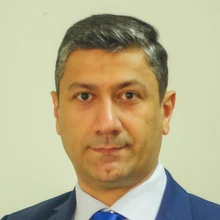Publications
Will a Trade Deal Repair India-US Ties?  By Shanthie Mariet D’SOUZA, PhD, founder & president, Mantraya Institute for Strategic Studies (MISS) By Shanthie Mariet D’SOUZA, PhD, founder & president, Mantraya Institute for Strategic Studies (MISS)
Existential differences and longstanding distrust make the current normalisation of relations deeply unstable.
New Delhi’s optimism about Trump’s return has given way to punitive tariffs, stalled negotiations, and diplomatic drift.
For the past several months, Indian negotiators have been trying, albeit unsuccessfully, to finalise a trade deal with the United States. On several occasions, negotiators, including India’s commerce minister and its chief economic adviser, have hinted at an impending breakthrough. Advanced-stage negotiations have been cited, or even an “intuition” that the bilateral trade agreement could be signed before 30 November, and that it would lower the punitive 50% tariff imposed by the Trump administration on Indian imports to about 10-15%. While “hope still floats” in New Delhi, there is an overall assessment that India-US relations are in a downward spiral and will struggle to recover. The non-conclusion of the trade deal is an unexpected development for the government in New Delhi, which seemed to have preferred the return of a Republican administration in Washington, one that doesn’t make human rights, religious and press freedoms important pillars of its foreign policy. However, after taking office, Trump unveiled a vastly different India policy that essentially wipes out the fond memories of his first term. READ MORE
Publications
TRIPP/Zangezur Corridor Must Serve both Peace and Connectivity
 By Vasif HUSEYNOV, PhD, Head of Department, AIR Center, Adjunct Lecturer, ADA and Khazar Universities, Baku By Vasif HUSEYNOV, PhD, Head of Department, AIR Center, Adjunct Lecturer, ADA and Khazar Universities, Baku
The Zangezur Corridor – recently rebranded as the Trump Route for International Peace and Prosperity (TRIPP) — has become one of the most discussed and debated infrastructure projects in Eurasia. Stretching 43 kilometres through Armenia’s Syunik Province, it promises to reconnect mainland Azerbaijan with its Nakhichevan exclave and, through Türkiye, to Europe. It is a project of logistics and trade — a corridor capable of shortening cargo transit from Asia to Europe from 18 days to 12 along the Middle Corridor, reducing dependency on maritime choke points, and creating new opportunities for growth across the South Caucasus. In practice, however, the TRIPP risks becoming a stage for geopolitical contestation unless regional actors ensure that its purpose remains economic, inclusive, and depoliticized. READ MORE
Publications
Russia’s Exclusion from Joint Caspian Drills Shows Regional Shift
 By Fuad SHAHBAZOV, Baku-based independent regional security and defence analyst By Fuad SHAHBAZOV, Baku-based independent regional security and defence analyst
On October 25, Azerbaijan participated in the Nusret-2025 Invitation Exercise, a joint military drill held in the Gulf of Soros in Türkiye. The exercise aimed to strengthen cooperation between the Turkish Naval Forces and the naval forces of friendly and allied countries, such as Azerbaijan. This is the latest example of Azerbaijan’s partnership with Türkiye in strengthening its naval forces. The Caucasus region, particularly the Caspian littoral, is emerging as a focal point of geopolitical competition amid rising tensions between Russia and the West. The Caspian, often referred to as a “Russian lake” during the Soviet era, has presented new challenges to Russia’s regional dominance since 2022. Until the 2020s, Russia remained the most powerful naval power in the Caspian Sea, despite Kazakhstan, Azerbaijan, and Iran systematically enhancing their naval capabilities over the past three decades. Russia’s full-scale invasion of Ukraine in 2022, as well as regional conflicts and reordering, have exacerbated Moscow’s declining leverage and hegemony in the South Caucasus and Central Asia. READ MORE
Publications
Is the India–China détente real?  By Shanthie Mariet D’SOUZA, PhD, founder & president, Mantraya Institute for Strategic Studies (MISS) By Shanthie Mariet D’SOUZA, PhD, founder & president, Mantraya Institute for Strategic Studies (MISS)
Existential differences and longstanding distrust make the current normalisation of relations deeply unstable.
This week (editor’s note: i.e. October 24- 28, 2025), India’s private airline Indigo flew one of its A320 planes from Kolkata to Guangzhou. It was the first direct flight from India to China in five years, following its halt during the Covid-19 pandemic and the souring of relations between the two neighbours in 2020 amid the border standoff that extended the freeze. In November, more flights, including Chinese carriers, will take to the sky, connecting New Delhi with Chinese cities. The resumption of direct air services is part of the increasing number of confidence-building measures undertaken by both countries to move past a history of distrust and adversarial relations. A détente is seemingly underway. However, on closer examination, the embrace appears more cautious and fragile. In recent months, both sides have unveiled more confidence-building measures. READ MORE
Publications
The Limits of Engagement in Afghanistan-Pakistan Relations  By Shanthie Mariet D’SOUZA, PhD, founder & president, Mantraya Institute for Strategic Studies (MISS) By Shanthie Mariet D’SOUZA, PhD, founder & president, Mantraya Institute for Strategic Studies (MISS)
Where once Islamabad and Kabul could calm tensions between them bilaterally, external mediation was needed this time around. There have been three ceasefire agreements between Afghanistan and Pakistan in less than two weeks. Two agreements collapsed or were violated before a final one was reached in Doha on October 19, which has held as of writing. These fragile, imperfect, yet frequent arrangements to cease hostilities, however, reveal three different dynamics between the two friends-turned-foes: first, the cordiality of the past is no longer a restraining factor for carrying out military measures against one another; second, these measures and counter-measures, however, won’t reach a point of truly destructive escalation; and yet, third, both countries are no longer able to resolve their differences bilaterally and need the assistance of external mediators indicating deep schisms and distrust in the relationship. READ MORE
Publications
Azerbaijan-Russia: Frenemies Forever?  By Tabib HUSEYNOV, independent policy analyst and researcher By Tabib HUSEYNOV, independent policy analyst and researcher
Azerbaijan-Russia relations have experienced a series of compounding crises since early 2025, raising questions about the future of Russian influence in the South Caucasus. This paper examines the underlying causes and strategic consequences of this shift in bilateral relationship, highlighting the decline of Russia’s regional influence, alongside Azerbaijan’s emergence as a more autonomous and confident regional power. The paper argues that Azerbaijan’s evolving strategic posture, underpinned by its alliance with Türkiye, its central role in transregional connectivity projects, and its relative economic resilience, has empowered Baku to engage Moscow in a more assertive and transactional relationship. At the same time, areas of interdependence remain, particularly in trade, transport infrastructure, and close humanitarian-cultural contacts, posing both risks and opportunities. The paper concludes that the future of Azerbaijan-Russia relations will hinge on Moscow’s ability to internalize the new power realities in the South Caucasus.
READ MORE
Publications
How Azerbaijan Reshaped South Caucasus Geopolitics
 By Aytaс MAHAMMADOVA, Energy Security Expert affiliated with the Caspian-Alpine Society By Aytaс MAHAMMADOVA, Energy Security Expert affiliated with the Caspian-Alpine Society
The year 2020 marked a watershed moment in the modern history of the South Caucasus, a turning point that fundamentally altered the region's geopolitical landscape. Azerbaijan, after 30 years of patient diplomacy punctuated by military confrontations, took decisive initiative and made history. The 44-day war that autumn demonstrated not only Azerbaijan's military capabilities but also its strategic determination to resolve the protracted Karabakh conflict through force when diplomatic channels proved exhausted. This bold move transformed Azerbaijan from a passive player awaiting international mediation into an active architect of its own destiny and, by extension, the region's future. Azerbaijan’s post-Karabakh victory and subsequent strategic initiatives have positioned it firmly on the path to middle-power status. By leveraging its geographic location at the crossroads of Europe and Asia, its energy resources, and its growing diplomatic influence, Azerbaijan has demonstrated the ability to shape regional agendas beyond its immediate borders. READ MORE
|
|